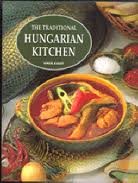Finally, this is, what lots of you were asking for – Intensive 2 day English course with Native Teacher
This a chance for you to:
• Learn to communicate at the most effective level.
• Learn to think (and dream) in English.
• Never be afraid to use all the English that you know. The biggest mistake you can make is to not speak.
• Be more comfortable in groups of English speakers, either native or non-native.
• Be able to understand the English language in a variety of contexts.
• Be able to understand English in different media, for example newspaper, radio, TV, internet etc.
• Never be afraid of your pronunciation again!
Remember that the best to way improve is to constantly use your English so get a head start here with my intensive courses.
Grammar will feature on the course but will not dominate. Speaking communication is a priority!
Homework activities will focus on class work and will be a requirement (where applicable).
The four skills of Reading, Writing, Listening and Speaking will be dealt with capably on these courses.
You will be required to use English at all times as this helps to create a truly intensive English experience.
You will have a 4 hour morning intensive class each day which will include aspects of grammar, vocabulary building, listening and speaking.
There will also be a 2 hour afternoon session which will be a more activity based lesson with students being able to avail of roleplay, debates, etc, all centred on the communicative method.
There will be a 1 hour lunch break between the morning and the afternoon sessions.
These courses will take place in a City Centre location in Budapest* (and other cities where applicable).
All course locations will be within walking distance of main public transport locations.
As I already give very competitive prices on individual courses I would like to extend this philosophy into my group intensive.
The breakdown is as follows:
Per hour intensive (morning) – 2000 HUF
Per hour intensive (afternoon) – 1500 HUF
Early bookings get a 10% discount.
Group intensives in my experience helps students to see exactly where they stand in terms of their general capability in a target language. Being in an environment in an intensive language structure always pushes a student that little bit further in order to keep up with the pace of the class.
Whereas group classes are level based as a teacher it is my job to make sure that each student, regardless of learning speed, will get the full benefit from these courses.
Group size: 8 – 12 students maximum!!!
*As this particular course (18-19 August) is in Budapest it is going to be much cheaper!
http://thehairyteacher.com/?p=613







